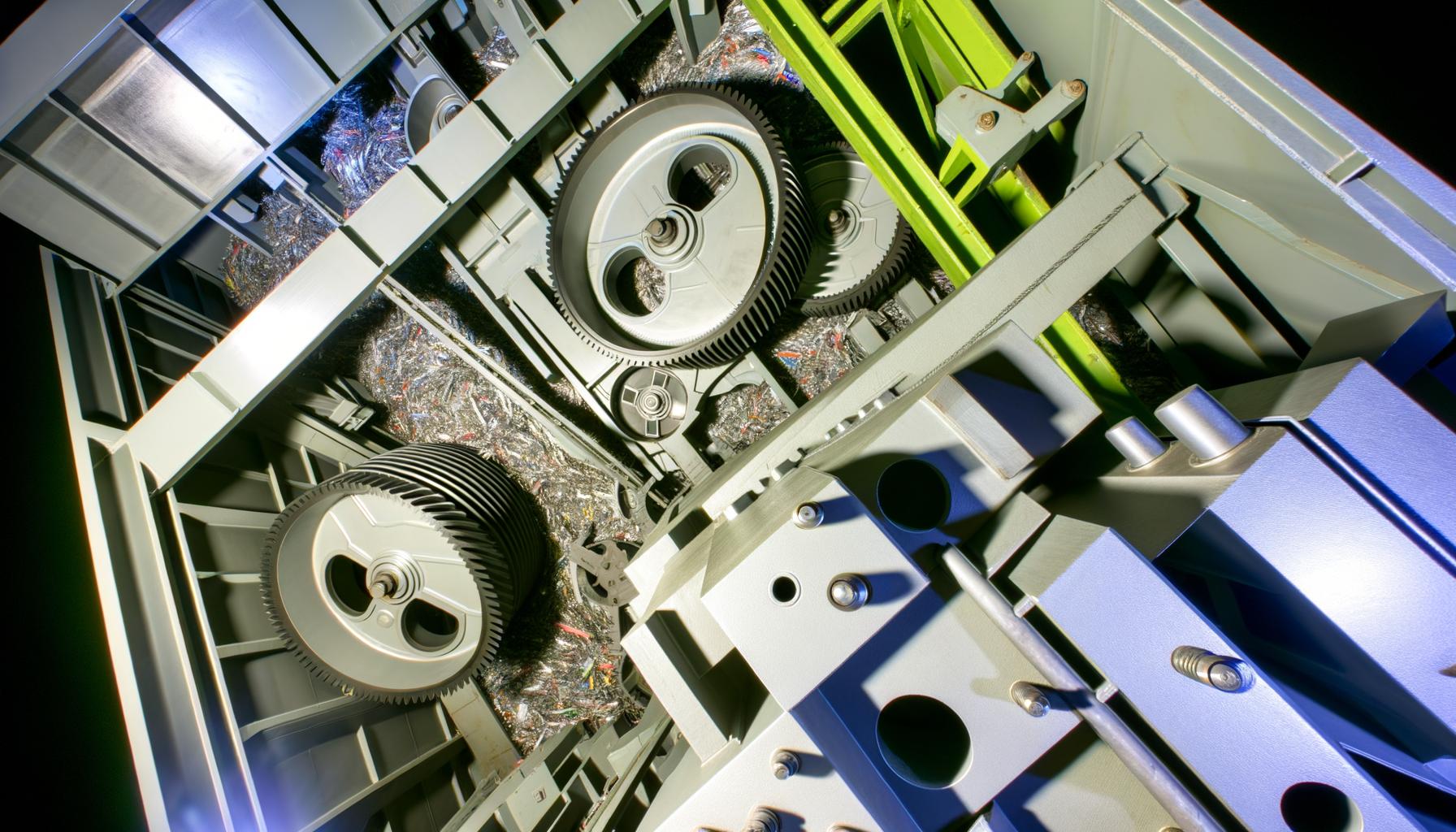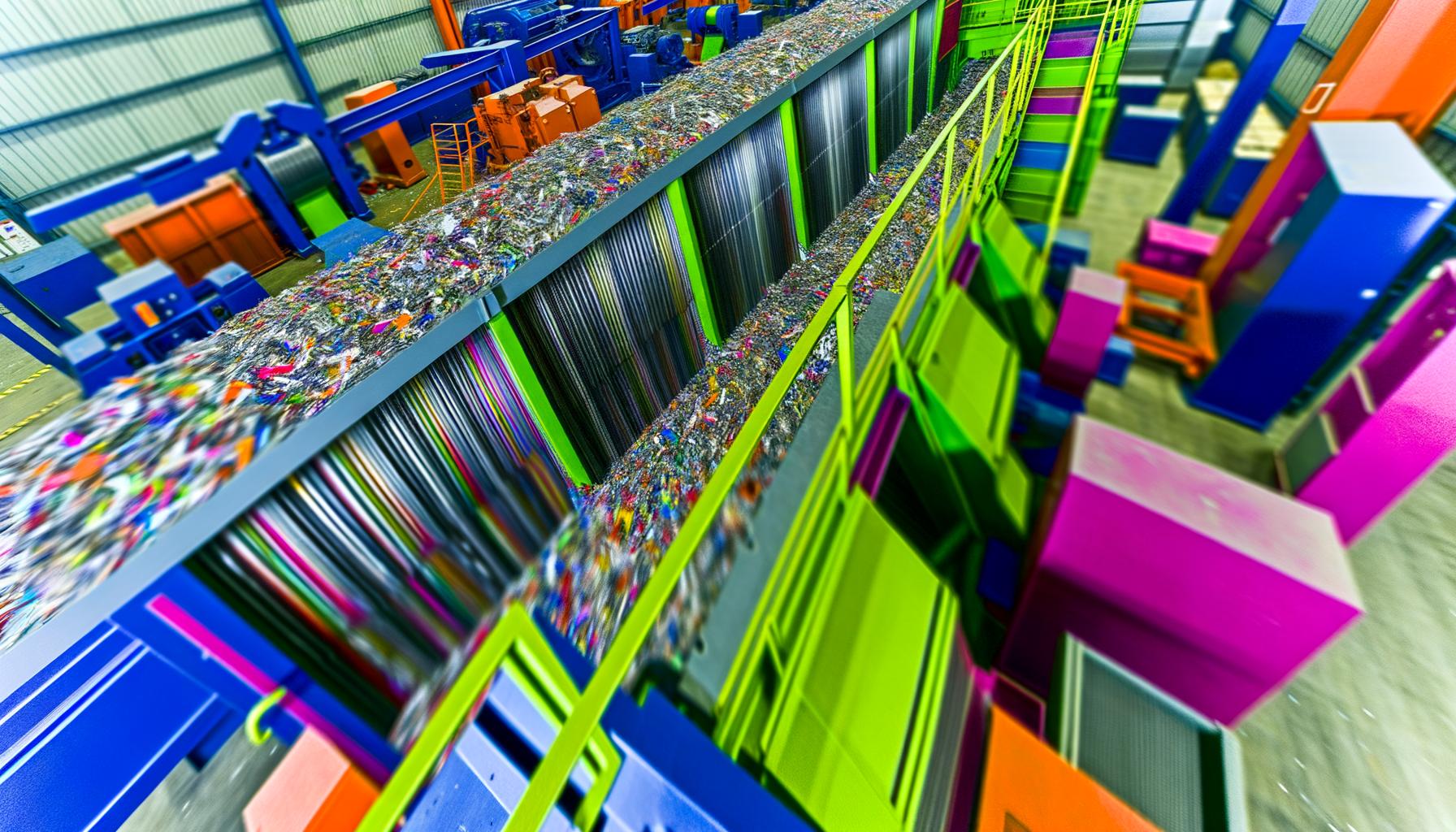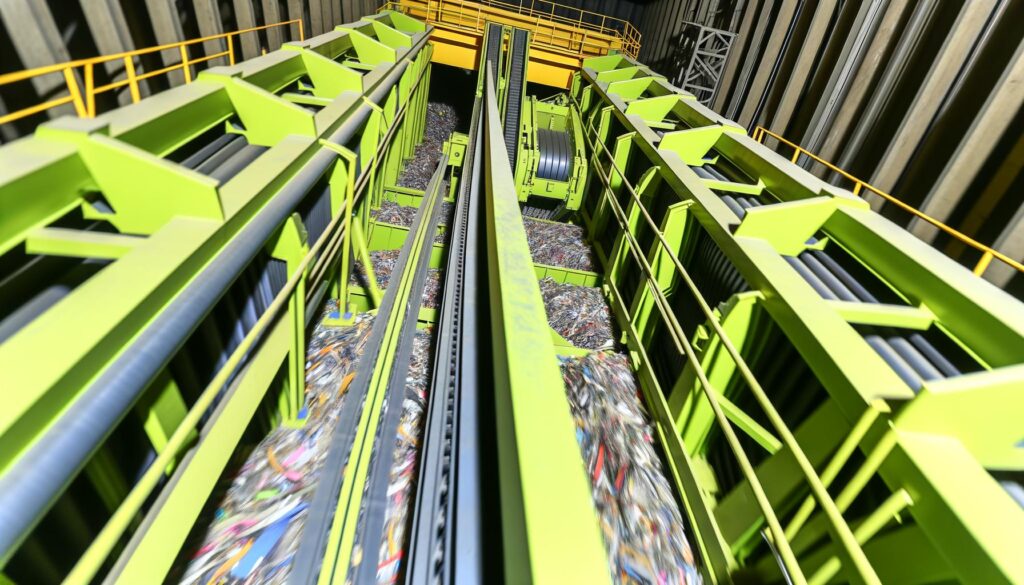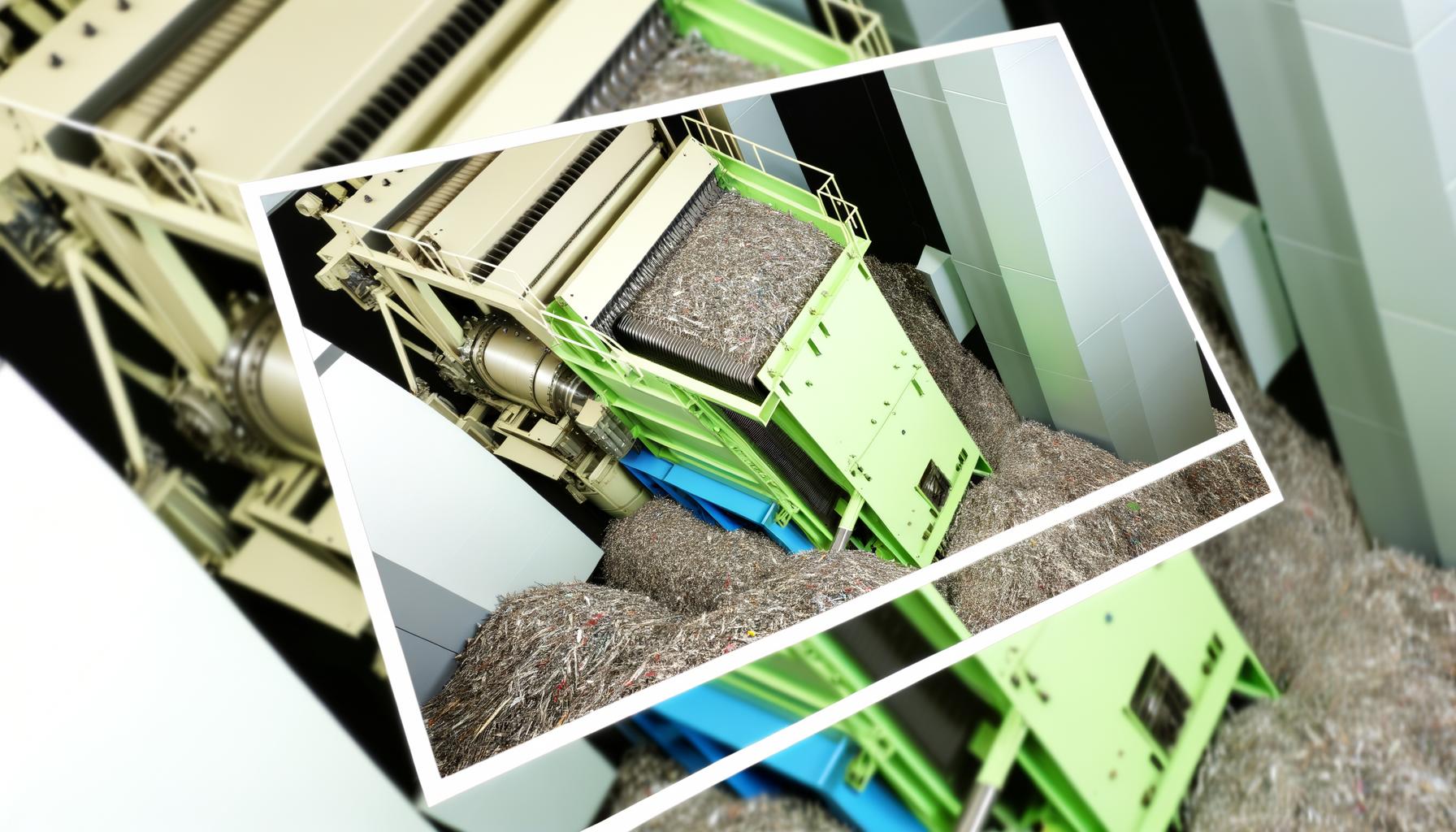Protecting sensitive information has never been more crucial in today’s digital age. With the increasing incidents of data breaches and identity thefts, individuals and businesses alike are seeking effective ways to secure their private data. One of the key strategies in this regard is secure disposal. Secure disposal involves not just discarding data but doing so in a manner that ensures it cannot be retrieved or misused by unauthorized entities.
In Lake Forest, the importance of secure disposal is particularly pronounced due to the city’s commitment to upholding high standards of data security and privacy. This community recognizes that safeguarding information isn’t just about protecting against external threats but also about ensuring that discarded data does not pose any risk. Properly disposing of sensitive information is essential to maintaining both personal privacy and business integrity.
Lake Forest has embraced various measures to promote awareness and best practices related to secure disposal. From local government initiatives to robust services offered by professional disposal companies, the focus remains on preventing data from falling into the wrong hands. By understanding and implementing secure disposal methods, residents and businesses can contribute significantly to overall information security in the area.
Understanding Secure Disposal
Secure disposal is a critical component in the realm of data protection, ensuring that sensitive information is irretrievably destroyed when no longer needed. At its core, secure disposal refers to techniques and methods used to eliminate digital and physical records beyond recovery. This process mitigates the risk of confidential data falling into the wrong hands. Both individuals and organizations must understand different secure disposal methods to protect personal and business information effectively.
There are several methods commonly employed for secure disposal. One method is shredding, which can be applied to both paper documents and digital media like CDs and DVDs. Another widely recognized technique is data wiping, which involves using software tools to overwrite existing data on hard drives or other storage devices multiple times, rendering it unrecoverable.
Degaussing is another effective method involving powerful magnets to disrupt stored data on magnetic media like tapes or hard drives. Additionally, physical destruction methods such as crushing, melting, or incineration ensure that residual fragments of information cannot be pieced together.
The importance of secure disposal extends beyond individual convenience; it encapsulates significant legal and security implications for businesses as well. Failure to dispose of confidential information securely can result in severe consequences like identity theft, financial loss, reputational damage, and regulatory penalties.
Companies store an immense amount of sensitive data-from client details and trade secrets to financial records-that must be protected even at the end of its lifecycle. By incorporating stringent secure disposal practices, entities can safeguard against unnecessary risks while complying with relevant legal requirements.
Implementing robust secure disposal measures ultimately ensures that information confidentiality is maintained throughout its entire lifecycle. Lake Forest’s commitment to fostering a culture of data security highlights the importance of adhering strictly to these prescribed methods for both personal protection and regulatory compliance. Leveraging professional services further guarantees that disposal processes are thorough, legally compliant, and environmentally sustainable.
Legal Requirements and Compliance
Data Protection Laws in Lake Forest and California
In Lake Forest, as part of California, adherence to stringent data protection laws is imperative. The California Consumer Privacy Act (CCPA) sets a high standard for data privacy, granting residents extensive rights over their personal information. It mandates businesses to handle sensitive information responsibly, providing consumers with rights like data access and deletion requests. Compliance with the CCPA and other relevant regulations ensures that information is managed securely from collection to secure disposal, preventing unauthorized access or misuse.
The Importance of Compliance
Compliance with these laws is not just a regulatory requirement but also a crucial aspect of building trust with clients and stakeholders. Non-compliance can lead to severe financial penalties and reputational damage. For instance, violations under the CCPA can result in fines up to $7,500 per intentional violation. More importantly, failure to properly implement secure disposal practices could expose confidential information leading to potential lawsuits and loss of business credibility.
Steps for Ensuring Compliance
To ensure compliance with legal requirements, businesses and individuals in Lake Forest need to adopt comprehensive data management strategies. This starts with performing regular audits of the types of sensitive information they handle. Implementing robust secure disposal methods such as shredding documents or degaussing electronics is paramount.
Additionally, training employees on proper data handling procedures minimizes the risk of accidental breaches. Partnering with professional secure disposal services can also be beneficial as these experts are well-versed in compliance requirements and can offer tailored solutions ensuring both legal adherence and data security.
Types of Sensitive Information
Personal Information
Sensitive information often starts with personal data like Social Security numbers, addresses, and birth dates. This type of information, when improperly disposed of, can lead to identity theft and fraudulent activities. Individuals in Lake Forest must recognize the importance of secure disposal methods to protect themselves from such risks. Ensuring that documents containing personal data are shredded or digitally wiped before discarding helps close the door on potential misuse by unauthorized entities.
Business Information
Businesses in Lake Forest hold a considerable amount of sensitive information that requires vigilant protection as well. Trade secrets, client details, and financial records top the list of business-related sensitive information. Improper disposal of these documents not only risks the company’s proprietary data but also could have severe legal repercussions and damage client trust. Utilizing secure disposal services for both paper-based and digital information is crucial for businesses looking to maintain their integrity and competitive edge.
Case Studies or Examples
Historical examples show how breaches due to improper disposal can have far-reaching consequences. For instance, there have been numerous cases where companies faced hefty fines because unsecured dumpsters were found with intact customer records. Such instances underscore the importance of adopting robust secure disposal measures. By learning from these breaches, both individuals and businesses in Lake Forest can implement strategies to ensure they do not fall victim to similar oversights.
By maintaining a focus on securing all types of sensitive information through proper destruction methods, residents and businesses in Lake Forest can significantly reduce potential risks associated with information breaches.
Secure Disposal Methods
Shredding is one of the most common and effective methods of secure disposal, applicable to both paper documents and digital media. Paper shredders come in a variety of types, including strip-cut, cross-cut, and micro-cut, each offering a different level of security. For highly sensitive information, cross-cut or micro-cut shredders are recommended as they turn paper into smaller pieces, making it nearly impossible for data to be reconstructed.

Digital media such as CDs and DVDs can also be shredded using specialized devices designed for this purpose. Secure disposal through shredding ensures that confidential information cannot be recovered by unauthorized individuals.
Data wiping is another essential method for ensuring secure disposal of electronic information. This software-based approach involves overwriting existing data on storage devices such as hard drives and SSDs multiple times with random data until the original information is irretrievable.
Tools like DBAN (Darik’s Boot And Nuke) or commercial software from companies like Blancco provide reliable solutions for individuals and businesses looking to securely erase data from their devices. Regularly wiping hard drives before resale, repurposing, or disposal helps eliminate risks associated with data breaches.
Degaussing is an electromagnetic technique used primarily for destroying data on magnetic storage devices like hard drives and tapes. This method disrupts the magnetic fields on the device where the data is stored, rendering it unreadable and effectively obliterating all content. Degaussing is particularly useful for high-security environments where even minimal traces of residual data could pose significant risks. It’s important to follow up degaussing with physical destruction to ensure total secure disposal compliance.
| Secure Disposal Method | Description |
|---|---|
| Shredding | Involves cutting paper documents or digital media into small pieces; effective for ensuring irrecoverable destruction. |
| Data Wiping | Software-based method that overwrites existing data multiple times; used primarily for hard drives. |
| Degaussing | Electromagnetic technique disrupting magnetic fields on storage devices; often followed by physical destruction. |
Another highly effective method involves the physical destruction of storage devices through crushing, melting, or incineration. Crusher machines apply immense pressure to break down hard drives into tiny fragments while providing a visible confirmation that the device has been destroyed beyond repair.
Melting employs high-temperature furnaces to liquefy metal components, completely eradicating their structure along with any stored data. Incineration involves burning objects at extremely high temperatures until they are reduced to ash-this method typically applies more broadly to both inorganic and organic material mixed with electronic waste (e-waste).
Businesses in Lake Forest can benefit significantly from employing professional secure disposal services equipped with state-of-the-art technology tailored specifically for these processes-thus driving down risk factors while maintaining regulatory compliance in terms of safely eliminating sensitive information either periodically or as needed basis effectively.
Benefits of Professional Secure Disposal Services in Lake Forest
Professional secure disposal services in Lake Forest offer numerous advantages for both individuals and businesses aiming to protect their sensitive information. One of the foremost benefits is the reliability and expertise provided by these professional services.
Unlike DIY methods, which can be prone to human error or inefficient data destruction techniques, professional services utilize advanced technologies and protocols to ensure complete obliteration of sensitive information. These specialists are well-versed in various secure disposal methods, from shredding and degaussing to physical destruction, ensuring that no data can be reconstructed once disposed of.
Furthermore, opting for local trusted service providers means you can rest assured that your data will be managed with the highest level of confidentiality and security. Many Lake Forest-based companies offering secure disposal services are dedicated to maintaining compliance with all relevant regulations and standards pertaining to data protection.
This includes adhering to federal laws such as HIPAA (Health Insurance Portability and Accountability Act) for healthcare information or the GDPR (General Data Protection Regulation) for businesses handling European citizen data. By employing these professional services, both individuals and businesses minimize the risk of legal repercussions associated with mishandling sensitive information.
The conveniences offered by professional secure disposal services also contribute significantly to their appeal. These companies typically provide options such as on-site shredding trucks that come directly to your location, allowing you to witness the destruction process firsthand for added peace of mind.
Additionally, they often offer scheduled pickups or drop-off points tailored to your specific needs, making it easy to integrate secure disposal into regular business operations without disruption. Through these tailored solutions, organizations can ensure not only compliance and security but also quite often a more cost-effective approach-considering the potential costs tied to data breaches-as compared to relying on internal resources alone for disposing of high-sensitivity information.
Local initiatives in Lake Forest additionally promote the eco-friendly aspect of professional secure disposal services by encouraging paper recyclables after shredding processes or facilitating proper e-waste recycling programs. This collab between tech-savvy professionals and environmentally conscious practices ensures that while we safeguard against identity theft and corporate espionage through *secure disposal*, we simultaneously contribute positively towards environmental sustainability.
DIY vs Professional Secure Disposal
For individuals and businesses assessing their options for secure disposal of sensitive information, it’s crucial to weigh the pros and cons of DIY versus professional services. Do-it-yourself (DIY) methods can often seem cost-effective at first glance due to the absence of direct service fees. For example, basic paper shredders are readily available for purchase and can handle a limited volume of documents.
Similarly, software tools for data wiping or overwriting hard drive data are available for those with some technical aptitude. However, these methods come with inherent risks and limitations that might not fully ensure secure disposal.
One significant drawback of DIY approaches is the safety and effectiveness concerns. Home-grade shredders may not shred documents to a fine enough degree to prevent reassembly, posing risks if sensitive information falls into the wrong hands.
Likewise, free or low-cost data wiping software may not completely obliterate data from storage devices, leaving residual traces accessible through advanced recovery techniques. In addition to concerns about safety and effectiveness, there’s also the issue of time investment; thorough DIY processes can be extremely time-consuming without guaranteeing full compliance with stringent legal standards.
In contrast, professional secure disposal services offer robust solutions backed by expertise and technology designed specifically for comprehensive data destruction. When hiring professionals in Lake Forest, clients benefit from certified destruction methods such as cross-cut shredding or industrial-grade degaussing that surpass what is achievable through typical DIY means.

Additionally, professional services often provide certification of destruction which serves as proof of compliance with state laws-a critical consideration given California’s strict privacy regulations like CCPA (California Consumer Privacy Act). As a result, while initial costs might be higher for professional services compared to DIY efforts, the long-term benefits in terms of guaranteed security and peace of mind can far outweigh these expenses.
| Aspect | Diy | Professional Services |
|---|---|---|
| Cost | Generally lower upfront expenses | Higher initial investment |
| Effectiveness | Potential gaps in security; basic equipment/software | High-level security; specialized equipment/methods |
| Time Investment | Significant personal time required | Saves personal/business time |
| Compliance Assurance | No formal certification; risk of non-compliance | Certified processes meeting legal standards |
Ultimately, whether opting for a DIY approach or hiring professionals hinges on the specifics of one’s needs including volume of sensitive information and importance placed on guaranteeing complete data elimination. Given the high stakes associated with improper handling-ranging from identity theft to severe business penalties-many find that investing in professional secure disposal offers significant advantages that justify its cost.
Eco-Friendly Disposal Options
In addition to general environmental concerns, Lake Forest has implemented several local initiatives that promote eco-friendly disposal practices. Programs such as community e-waste collection events allow residents to securely dispose of their outdated or broken electronics without causing harm to the environment. These events often partner with certified e-waste recycling companies that ensure all data is completely erased before devices are recycled, addressing both environmental and data security concerns through secure disposal methods.
Participating in these local initiatives is straightforward and highly beneficial for both individuals and businesses. For instance, many local governments offer drop-off points for electronic waste or even schedule pickup services for larger quantities. By following these guidelines for environmentally responsible disposal, Lake Forest residents help minimize hazardous waste while ensuring sensitive information doesn’t fall into the wrong hands.
| Benefit | Description |
|---|---|
| Reduction of E-Waste | Minimizes landfill contribution and pollution. |
| Material Reclamation | Reuses metals and plastics from old electronics. |
| Energy Conservation | Reduces energy used in mining and processing. |
Additionally, partnering with professional secure disposal services that emphasize eco-friendliness ensures compliance with legal regulations while protecting sensitive data. Using certified e-waste recyclers guarantees that disposed items won’t contribute to environmental harm and ensures complete destruction of confidential information through advanced techniques such as shredding or degaussing before recycling processes begin. Therefore, combining secure disposal with eco-friendly methods provides a holistic approach to protecting both your data and our planet.
Best Practices for Secure Information Disposal
When dealing with sensitive information, it’s essential to implement best practices in secure disposal to safeguard against potential data breaches. Developing a set of protocols ensures that your data is irretrievable once you no longer need it and provides peace of mind whether you are an individual or running a business in Lake Forest.
Checklist for Secure Disposal Practices
A detailed checklist is the backbone of effective data disposal. This list should include steps such as identifying sensitive documents and electronic data, categorizing them based on their level of sensitivity, and determining the most appropriate disposal method for each type. For paper documents containing personal information like Social Security numbers or birth dates, shredding should be on top of the checklist.
For electronic media containing trade secrets or financial records, techniques like data wiping or degaussing may be recommended. Ensuring that these tasks are regularly reviewed and updated guarantees ongoing security.
Periodic Audits and Monitoring
Ongoing compliance isn’t achieved through a one-time effort but through routine audits and consistent monitoring. Both individuals and businesses in Lake Forest should schedule periodic audits to assess their information disposal practices. This can help identify gaps where certain documents or devices might have been overlooked. Conducting regular checks allows for adjustments to current procedures if vulnerabilities are identified, thereby minimizing risks associated with improper disposal.
Education and Training Initiatives
Another key component of secure disposal practices is educating employees and family members about its importance. Holding training sessions or workshops focused on how to identify sensitive information and the proper methods for secure disposal can significantly mitigate risks.
For businesses especially, making sure that all employees are aware of both legal requirements and company policies regarding data destruction is crucial. Education initiatives don’t just stop at formal training; periodic reminders through emails or meetings can reinforce the importance of maintaining these practices rigorously.
Implementing comprehensive secure disposal strategies not only helps in safeguarding sensitive information from unauthorized access but also aligns with Lake Forest’s commitment to community safety and compliance with regulatory standards.
Case Studies
The perils of improper disposal practices can be best illustrated through real-world examples. One notable case involved a healthcare facility in Lake Forest that inadvertently exposed sensitive patient information due to inadequate data disposal methods. The facility had contracted an unverified vendor for shredding documents, assuming that standard procedures were being adhered to.
However, it was later discovered that the vendor had been improperly disposing of shredded documents in unsecured dumpsters. This breach led to critical medical records and personal information being accessible to the public, resulting in a significant legal and financial fallout for the healthcare provider.
Another incident concerned a local financial institution that suffered a severe data breach due to improper electronic waste handling. In this case, several decommissioned hard drives containing clients’ financial information were disposed of without undergoing a thorough data wiping or physical destruction process.
A hacker managed to retrieve these hard drives from an e-waste recycling center and extracted vital banking details, leading to multiple instances of identity theft and fraud. This breach underscored the inadequacy of simply discarding electronic devices without employing secure disposal methods like degaussing or professional-grade shredding.
Improper disposal has even impacted smaller businesses in Lake Forest, such as a boutique law firm that fell victim to corporate espionage after failing to securely dispose of outdated files. The firm discarded old client contracts and confidential legal documents in regular trash bins instead of using secure disposal services. Competitors obtained access to these documents and used the sensitive information for their advantage in ongoing litigation cases.
This not only compromised client trust but also tarnished the firm’s reputation irreparably. These instances highlight how negligence in secure disposal can have far-reaching consequences across various sectors, making stringent secure disposal protocols not just advisable but essential for safeguarding sensitive information.
Community Initiatives and Support
In Lake Forest, community initiatives play a vital role in promoting the secure disposal of sensitive information. These efforts are driven by local organizations and government agencies dedicated to maintaining data security. One notable initiative is the annual “Secure Shred Day,” where residents can bring documents and electronic devices for free shredding and secure disposal. This event not only helps individuals safely dispose of their unwanted materials but also raises awareness about the importance of data protection.

Local businesses are also actively involved in supporting secure disposal practices. For example, several banks and credit unions offer their customers free or discounted shredding services as part of their commitment to data security. Small businesses, particularly those handling large volumes of sensitive customer information, can benefit significantly from these services. By collaborating with professional disposal service providers, they ensure that all discarded documents and devices are handled securely, mitigating the risk of data breaches.
Furthermore, educational workshops hosted by the city council provide residents with valuable knowledge on how to safeguard personal information. These sessions cover topics such as identifying which documents contain sensitive data, understanding different secure disposal methods, and learning about e-waste recycling options available in Lake Forest. Attendees are often provided with checklists and other resources to help them implement safe disposal practices at home and in their workplaces.
In addition to these programs, several local initiatives focus on eco-friendly disposal methods. The city has partnered with certified e-waste recyclers to ensure that electronic waste is processed responsibly. Residents are encouraged to drop off old electronics at designated collection points where items undergo secure disposal techniques like degaussing or physical destruction before being recycled effectively. This dual focus on security and sustainability highlights Lake Forest’s commitment to protecting both its residents’ privacy and the environment.
Community support networks further bolster these initiatives by offering assistance to those who need help disposing of sensitive materials securely. Local libraries often act as hubs for information dissemination regarding secure disposal practices and upcoming events related to data protection. By fostering a culture of awareness and responsibility around data security issues through these various community-focused efforts, Lake Forest not only enhances its overall safety but also promotes a sense of collective vigilance among its residents.
These comprehensive community initiatives demonstrate how coordinated efforts within Lake Forest contribute significantly toward ensuring secure disposal processes are accessible, effective, and environmentally responsible for everyone involved.
Conclusion
In conclusion, protecting sensitive information through secure disposal is an imperative that cannot be overlooked by both individuals and businesses in Lake Forest. As we have outlined, the methods of disposal range from shredding documents and wiping digital data to degaussing and physical destruction of storage devices. Given the potential risks associated with improper disposal-ranging from identity theft to severe financial penalties-it’s clear that adopting robust secure disposal practices is not just a recommendation but a necessity.
Lake Forest has shown a strong commitment to data security, underpinned by strict compliance with local and state regulations. Whether it’s adhering to specific legal requirements for data protection or engaging professional services, the path to safeguarding sensitive information is well-defined yet demands continuous diligence.
For high-sensitivity data, relying on professional secure disposal services offers unmatched reliability and peace of mind. Meanwhile, the eco-friendly approaches promoted within the community ensure that these processes are sustainable and environmentally responsible.
We encourage residents and businesses in Lake Forest to take proactive steps toward secure disposal of their sensitive information. Understanding the importance of proper data destruction methods can protect against breaches and maintain confidentiality.
By engaging with community initiatives, participating in local programs, and leveraging trusted professionals for this vital task, you contribute not only to your own peace of mind but also to a safer collective environment for everyone. Remember, practicing secure disposal is more than just a safeguarding measure; it’s a commitment to maintaining trust and security within our community.
Frequently Asked Questions
What Is Secure Disposal?
Secure disposal is the process of getting rid of sensitive information or materials in a manner that ensures they cannot be accessed or reconstructed by unauthorized individuals. This often involves shredding documents, securely erasing digital files, or using trusted disposal services to handle and destroy items that could otherwise pose a security risk if improperly discarded.
The objective is to protect confidential data from exposure.
What Does Securely Dispose of It Mean?
To securely dispose of something means to permanently eliminate it in a manner that prevents any possibility of reconstruction or misuse. For documents, this typically involves shredding them into small pieces, making them unreadable. For electronic data, it may entail using specialized software to remove all traces of the information from storage devices beyond recovery capabilities.
What Is a Disposal of Security?
Disposal of security refers to the selling, transferring, or otherwise relinquishing ownership of financial securities such as stocks, bonds, or other investment instruments. This can occur for several reasons, including liquidating assets for cash flow needs, changing investment strategies, or eliminating assets that are no longer performing well.
How Do You Securely Dispose of Documents?
To securely dispose of documents, one must ensure they are destroyed in a way that protects the confidentiality and integrity of the information contained within them. Common methods include cross-cut shredding paper documents so that reassembly is impossible and incinerating particularly sensitive papers to leave no trace behind.
For digital documents, overwriting data on storage devices multiple times or using tools designed for secure deletion is essential before disposing of the hardware.
What Is the Disposal Rule?
The Disposal Rule refers to regulations and guidelines set forth to control how organizations should dispose of consumer report information and records derived from consumer reports in order to prevent unauthorized access and use thereof. It mandates measures like shredding or burning physical records and deleting electronic files using appropriate software solutions.
What Is the Difference Between Secure Landfill and Sanitary Landfill?
A secure landfill is specifically designed with stringent environmental protections to isolate waste from the environment and prevent contamination through lining systems and leak detection methods; it’s commonly used for hazardous waste requiring long-term isolation.
In contrast, a sanitary landfill is engineered for general municipal solid waste with systems in place to manage landfilling but not necessarily tailored for highly hazardous substances.
What Does Disposal Mean in Account?
In accounting terms, disposal refers to removing an asset from the company’s books due to its sale or retirement from use within business operations. When an asset is disposed of, its book value is removed from balance sheets, often involving adjustments depending on whether it was sold at a gain or loss compared to its recorded net value.
What Is the Meaning of Safe Disposal?
Safe disposal means eliminating wastes in such a way that minimizes potential harm to individuals’ health and the environment while ensuring compliance with legal and regulatory requirements regarding material handling techniques involved in disposal practices aimed at protecting public safety standards effectively.




